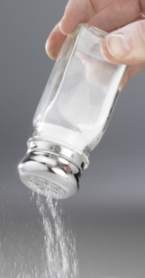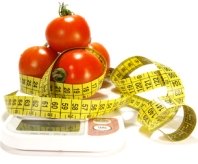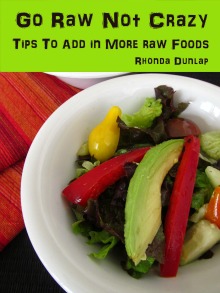Sea Salt vs Table Salt — Does it Matter?
Sea salt vs table salt — Aren't they all the same? Learn about the health benefits of sea salt here.

A Bit of 'Salty' History
Long before the debate of which is the best salt, there was this wonderful nutrient simply called “salt.” Salt was used as medicine, for eating and in preserving foods. Salt was also used as a form of currency. This is where we get the phrase “worth his salt.” The word “salary” is derived from salt. In recent years this valuable commodity has received a status as a culprit in all sorts of medical problems, especially those associated with heart disease. People with high blood pressure have been repeatedly told to go on a reduced sodium diet, if not eliminate salt from their foods altogether.
So what's the verdict?
Is salt good or is it bad?
Sea salt vs table salt?
What is the difference?
The Evils of Table Salt
Real salt (sea salt) vs Table salt: One is healing and beneficial, the other is unhealthy.
The white salt that you may have in your salt shaker is processed salt. It is not “real salt” since it is heated to above 1000º F. Now if you want to eat raw, you know that this is not good and certainly not raw. This extreme heating process has chemically altered its composition. In essence, the salt is dead.
Even processed sea salts are heated before anti-caking additives, such as sodium silicoaluminate or magnesium carbonate, are added. Sometimes other harmful preservatives are also added. This type of salt is refined and during the refining process, 82 of the 84 minerals contained in salt are removed. Table salt has only two components: Sodium and chloride. These two elements are poisonous to the body.
Benefits of Sea Salt
All sea salt is not the same. In fact, many times manufacturers have tried to market and sell sea salt claiming that it is so much better, and yes, even healthier than table salt.
The facts are, generally speaking, that sea salt is superior to table salt. Natural unprocessed, uncleaned and unrefined sea salt has many trace minerals, is beneficial and provides many nutrients that the human body needs.
The negative side of products that are marketed as “sea salt” is that many of these are simply sea salt in name only and is really a processed and refined salt, possibly with anti-caking agents, preservatives and stripped of vital nutrients, making it not much different than regular table salt.
Sea Salt Nutrition
Natural, unrefined and unprocessed salt from the sea is a nutritious food. Some of the many minerals that compose sea salt nutrition
are magnesium, manganese, boron, copper, silicon, iron and nickel. It
also has all the trace mineral elements that are naturally found in our
blood.
Celtic sea salt
- This a a popular brand name of natural, healthy, unprocessed sea salt. Many raw chefs prefer Celtic sea salt.
Himalayan pink salt
- This is a salt that has been mined from the Himalayas. It has a
pinkish color and a distinctive taste different than Celtic sea salt. This, too,
is unprocessed, natural, healthful salt.
Best sea salt - The best sea salt is is whatever real salt
that you can find. Whatever the brand name, the best sea salt will not
be processed, cleaned or contain additives. It may not even be called
“sea salt.” It will not be iodized sea salt (iodized
salt is not a natural type of salt). The best sea salt will not be snow white and easy to pour, which is indicative of a processed product.
To ensure that you are getting the best raw, natural salt, buy the coarse crystals, take a salt grinder and grind them yourself. For your body's sake and your raw diet, find a natural, unprocessed salt product and enjoy.
Healing Benefits of Natural, Real Sea Salt
Other than the widely recognized benefit of making a variety of foods taste good, salt, real salt from nature with all 84 elements and minerals, has many virtues. When comparing sea salt vs table salt, if the sea salt is in its natural, unprocessed, raw state it is far superior; a healing food rather than the sodium chloride in common table salt. Here are some benefits of real, raw, natural salt.
Asthma- After drinking a glass or two of water, place a bit of
salt on your tongue. The salt and water can negate the severity of
asthma, stop persistent dry coughs and help rid the lungs of mucus and
phlegm.
Blood Pressure- real natural sea salt will lower high blood pressure and elevate low blood pressure. It does this by seeking out harmful sodium deposits and eliminate this poison from your body.
Congestion from Colds- A solution of real salt water helps break up and relieve congestion due to colds.
Depression- The nutrients in salt help support the antidepressant chemicals in your brain.
Diabetics- Natural salt helps to balance the blood sugar of diabetics.
Immune System- The rich mineral and nutrient content in natural salt will support the immune system and aid in healing when there is trauma to the body.
Kidney Health- Salt is necessary for your kidneys to remove excess acid from your body. Real salt is alkaline and will help balance your body's pH.
Muscles- Salt helps to prevent muscle cramps. Remember that the heart is a muscle. Salt is important for regulating heart beats.
pH balance- The alkaline nature of real salt will help remove acid from the body, especially the brain cells.
Sleep Aid- Drink a full glass of water. Then place a few salt crystals on you tongue to help promote a restful night's sleep.
Stress- The minerals in salt helps supports the antidepressant neurotransmitters, serotonin, melatonin and tryptamine levels in the brain. Real salt will help you cope with real stress.
As good as natural sea salt is for you, as with anything, do not overdo it. Always make sure that you are drinking enough water to wash out excess salt. To make sure you are giving yourself the best water. Consider bottled water vs. tap water. When using salt for medicinal purposes, a good calculation is about ¼ teaspoon to one quart of water.
Here is how you make raw "pasta" using natural, raw sea salt vs table salt.
Raw Pasta
Ingredients:
1 small to medium zucchini (or other squash)
1 teaspoon real salt
Directions:
Using a mandoline, a cheese slicer, a food processor or a vegetable peeler, depending on what kind of "noodles" you want, thinly slice the zucchini. Place the "noodles" in a bowl and sprinkle them with salt. Keep them at room temperature for at least an hour. The salt will cause the noodles to "sweat" and release moisture. Drain off the water, rinse if desired and pat dry. Let the noodles dry even more to make them more pasta-like.
Salty Spears 'N Rounds
Ingredients:
1 small to medium zucchini
2 cucumbers
Celtic sea salt, Himalayan pink salt or the best sea salt you can find
Directions:
Peel the vegetables if they are not organic or if you so desire. Slice the cucumbers in thick circles or ovals and cut the zucchini into spears. Arrange on a serving plate and sprinkle generously with the best sea salt you can find. Serve and enjoy.

Go from Sea Salt Vs. Table Salt to Superfoods Diet
Follow
Guide with Over 50 Recipes!

Guide to Super Raw Foods is now available for Kindle or paperback on Amazon

Sign-up for Newsletter and get my Free E-Book Go Raw Not Crazy
Check Out These Sites:

